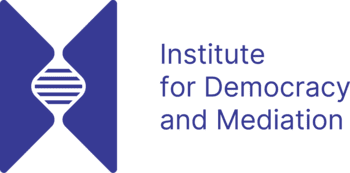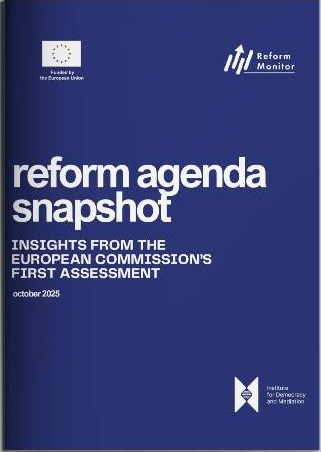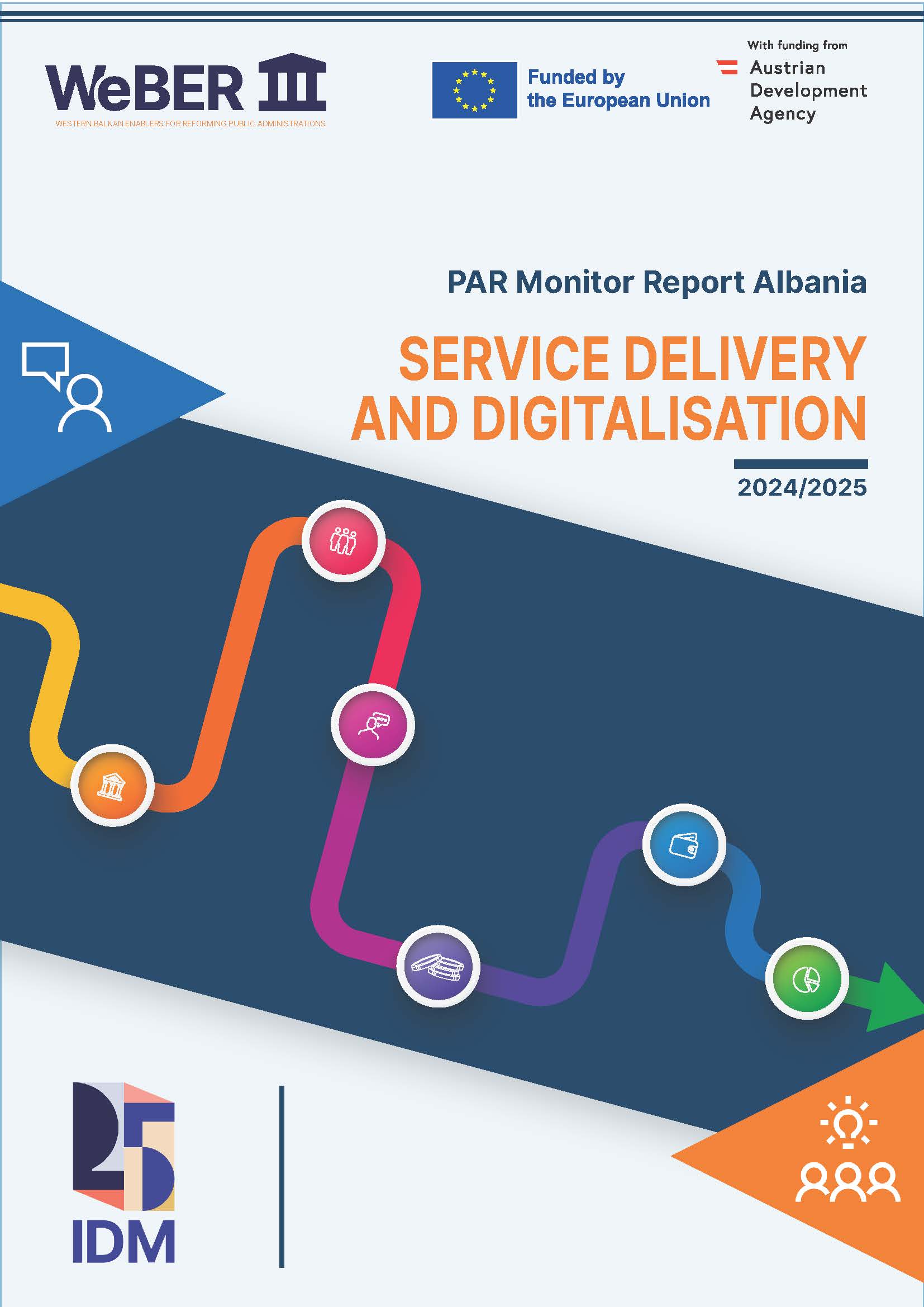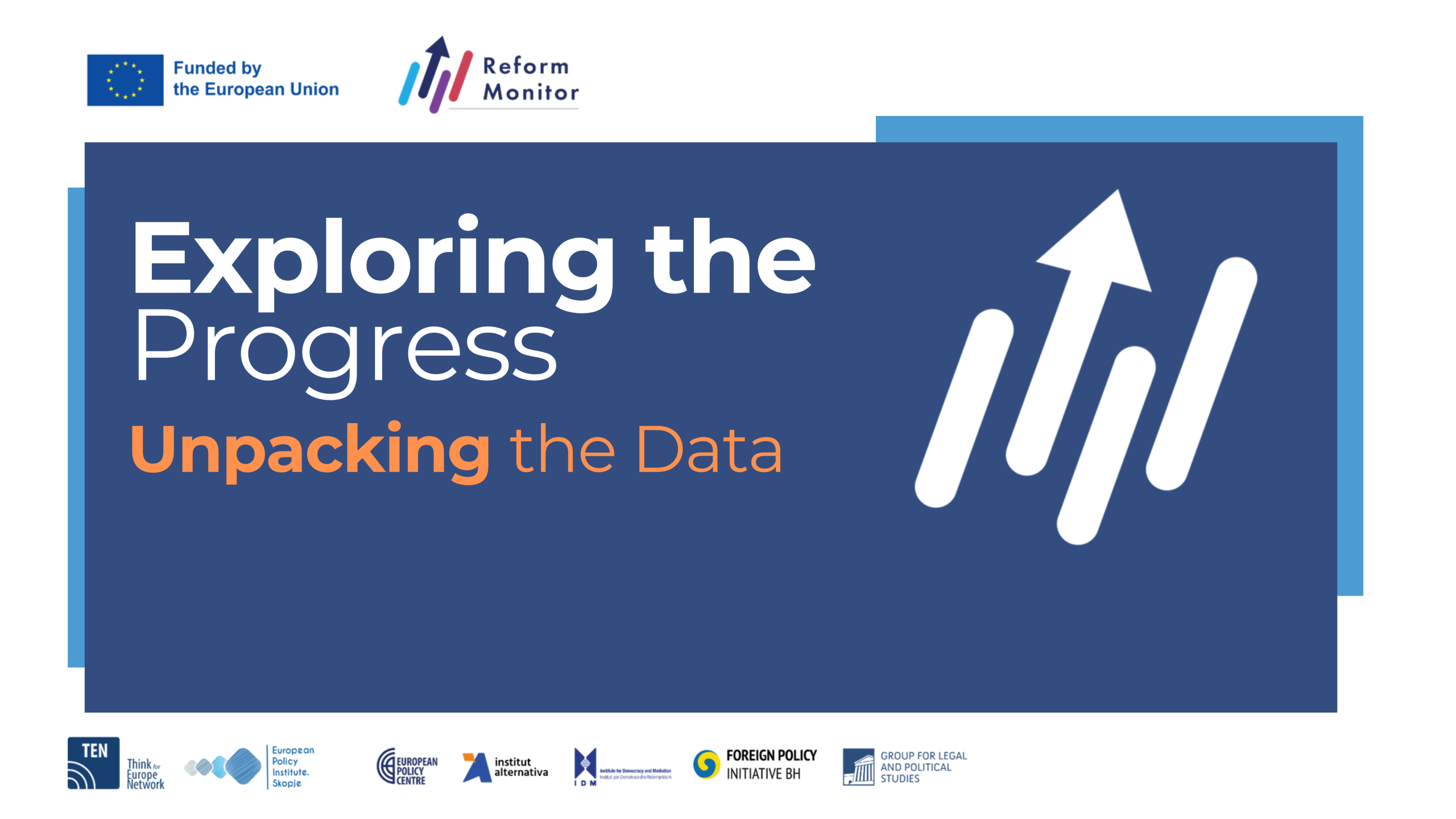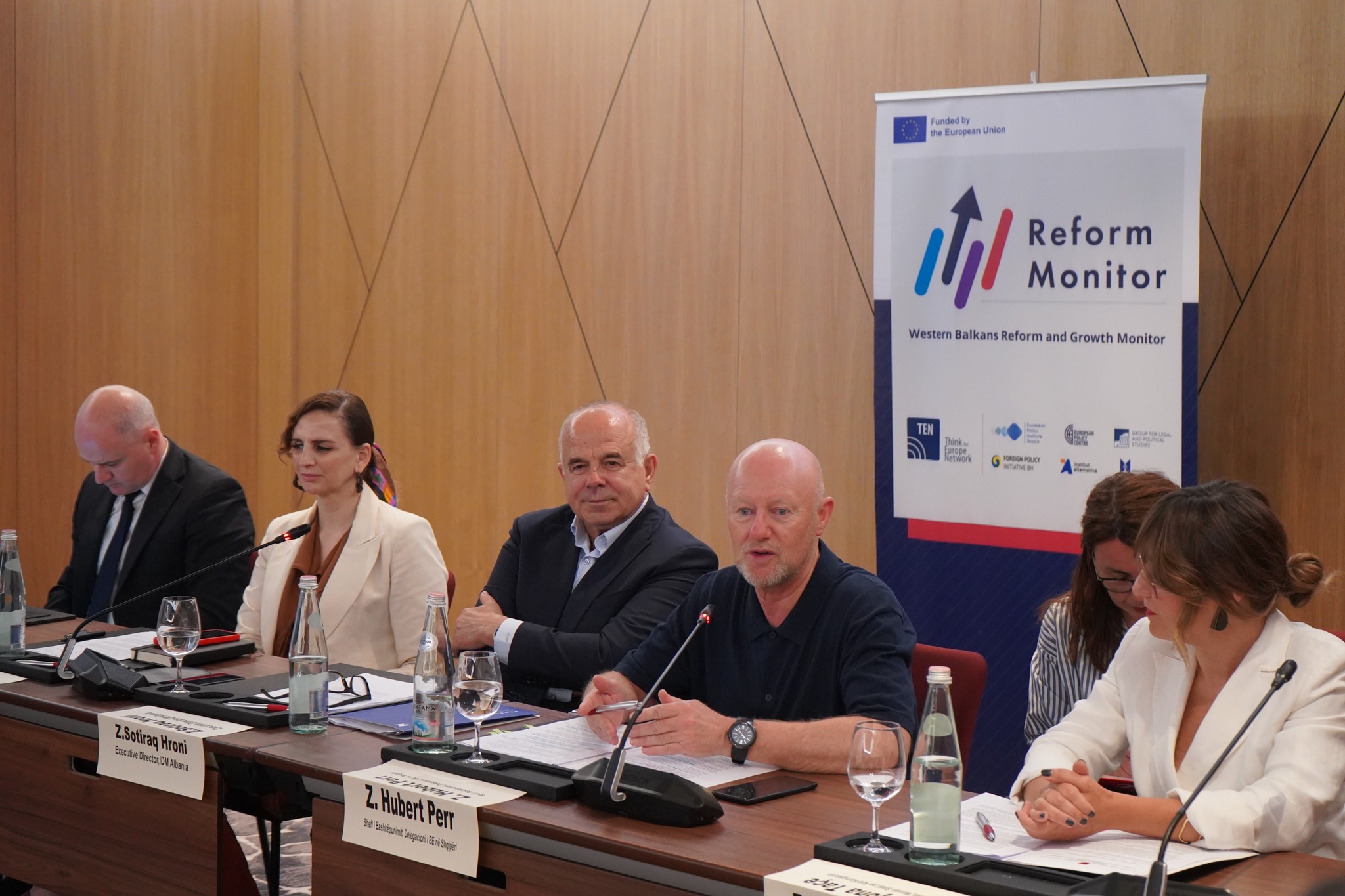23 November 2011, Hotel Tirana International
Center for European and Security Affairs (IDM) organized the Panel Discussion “Challenges to Enforce Aligned Legislation in Albania”. This meeting gathered a carefully selected audience of institutional representatives, public and private interest groups, civil society experts, media, academia to discuss on the problems of the Albanian legislation alignment process with the EU acquis and as well future challenges of EU accession process.
An interactive debate took place between the senior institutional representatives: Mr. Clive Rumbold, (Head of Political Section at EU Delegation to Albania), Mr. Edmond Hoxha, (Deputy Minister of Integration), Ditmir Bushati (Chairman of Parliamentary Committee on European Integration) and a number of key representatives from interests groups, civil society, business and academia.
Mr. Gjergji Vurmo, presented the Policy Brief “Lost in Implementation: Albania’s Alignment with EU acquis” (ENG/ALB) and an overview of the Albanian progress in the process of alignment, with a special focus on the decision-making and legislation drafting process as well as the challenges of implementation.
Mr. Clive Rumbold, EU Delegation representative in Albania emphasized the relevance of approximating the Albanian legislation with that of EU, while recognizing the concerns over the low level of consultations with all stakeholders and different interest groups. He acknowledged that this process often faces insufficient planning of capacities, human resources and the social impact of different draft laws.
While the Deputy Minister of European Integration Mr. Edmond Hoxha, made a positive assessment of the achievements over the years and the contribution of civil society in this regard. The Deputy Minister underlined the need for better capacities and the local absorption capacity, the cooperation between state actors and interest groups in improving the overall legislative process and especially the implementation of legislation.
The Chairman of the Parliamentary Committee on European Integration Mr. Ditmir Bushati lays emphasizes on the fact the alignment process in not only technical but also political. He stated that there is no preliminary identification of the capacities to support the process which further brings negative impact.
The Panel discussion drew attention to three main shortcomings in relation to legislation alignment with the EU acquis: 1) involvement of interest groups and other non-state actors (external consultations); 2) ex ante assessment of economic and other impact on the local context; and 3) thorough assessment of implementation costs and coordination resources among responsible institutions.
Recommendations
- Unification of line ministries’ basic rules and practices regulating participatory processes, consultations, informing and involvement of interest groups in drafting legislation
- Improving capacities, expertise and resources of Government institutions to carry out realistic planning, risk management and institutional coordination
- Strengthen role of the Parliament in relation to the approximation process, notably by improving resources for expertise, meaningful cooperation between parliamentary committees, line ministries, civil society and interest groups.
- Establishing the National EU Accession Council with sectorial working groups under the lead of the Parliament and with the involvement of the Government, as a consultative forum with interest groups from the private sector, academia, civil society etc.
